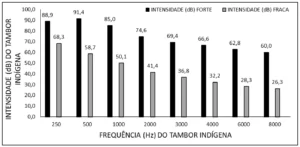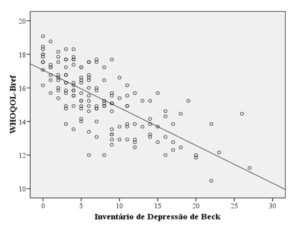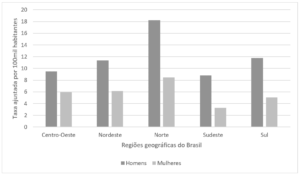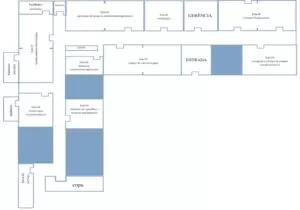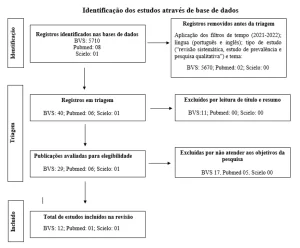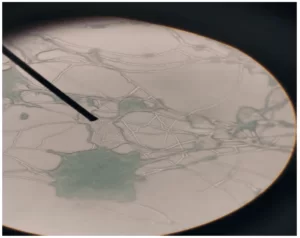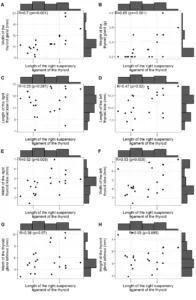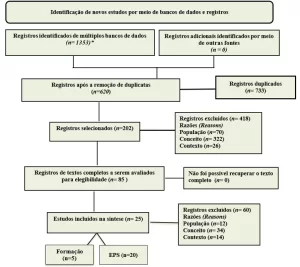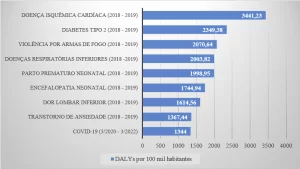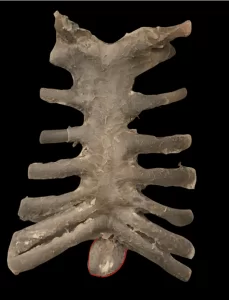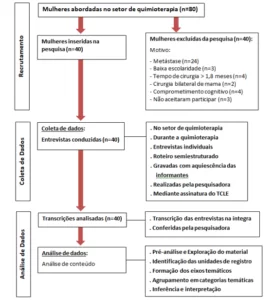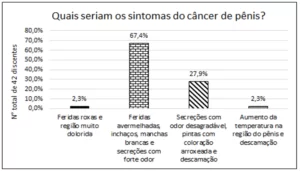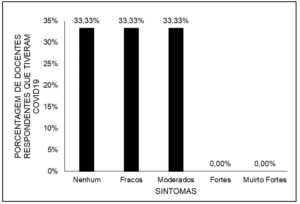LESSA, Jeanne Duarte [1]
SILVA, Alayde Ricardo da [2]
LESSA, Jeanne Duarte; SILVA, Alayde Ricardo da. Management Skills: A Challenge for Nursing. Multidisciplinary Scientific Journal. Edition 06. Year 02, Vol. 01. pp. 60-71, July 2017. ISSN:2448-0959
SUMMARY
Competency management is a challenging process that achieves objectives by aligning mission, vision, values, institution strategy, and human capital. It is precisely in the quest for maximizing results that institutions must rethink their management models and invest more and more in equity and intellectual capital. The objective of this study is to analyze the managerial competencies of the Nurse. It is a Bibliographic Review study, developed based on materials already elaborated, anchored in the collection of books, dissertations and scientific articles in the sites of Scielo, Medline and Lilacs. It is concluded that the changes in the nurse's management have been numerous, implying a careful look at the evolution of their competencies. In this context, the Nurse requires skills that allow him / her to manage health care / health care teams, develop research and collaborate in their training.
KeyWords: Management, Health Management, Professional Competence.
INTRODUCTION
The world, in this new millennium, goes through many transformations. The age of knowledge is lived and people are the ones who hold it, making them more valued because they constitute the intellectual capital of an organization. The process of globalization and the resulting competitiveness have brought about the need for a new profile of human resources in companies. With this, companies have sought to develop to meet the growing demands of the market. It is increasingly desirable for people to be leaders, to be involved in business, to be flexible, to seek results, to be able to work as a team, to be appreciative and to teach and have a vision of the future for professional success in this new century 1.
It is known that with the new managerial tendencies, under the paradigm of globalization and technological advance, organizations must assume a more rational and at the same time intelligent posture. Thus, they will perform their functions within the standards of total quality, as well as providing a better quality of life to their employees, so that they feel motivated to produce better and better in a timely manner 1.
According to Antunes and Trevisan, Quality Management allows companies to follow the changes and even anticipate them, since it emphasizes the continuous improvement of products and services, the use of the scientific method and data monitoring that supports decision making. In addition, it has proved useful in any company, whether it produces goods or services, large or small, public or private 2.
The organization plays a key role in shaping its human resources. However, it is necessary the individual commitment of each employee in the establishment and implementation of their development plan, seeking better individual and institutional results 3.
One of the challenges of career management and people management is that, in order to aggregate competitive advantages, organizations increasingly need to engage people, offering greater opportunities for growth and development in exchange for commitment to the organization's stated goals.
For nursing professional practice, this context defines important determinants for the development of competencies, compatible with this scenario, especially if the competence is defined as: a set of knowledge, skills and attitudes, which results in a delivery or a practical application 4.
According to Peres 5:
Competence consists of a notion that responds to postmodern thinking, as a mechanism of adaptation of individuals to the instability of life. Forming competent professionals allows an emancipatory, defined and constructed action in the joint social practice between teaching and service institutions, among students, educators and professionals.
Therefore, it is necessary that nurses managers seek to constantly seek continuous learning, always aiming at improving the care of clients, as core competence, research, teaching and health consulting, remembering to be based on principles and practices experienced by nursing professionals working in the health service, aiming to contribute to a more articulated production between the political and techno – epidemiological dimensions of the Brazilian health care model. In this aspect, the nurse professional should have a competency profile that includes technical and behavioral competencies 6.
The nurse as manager of nursing care in their daily practice, requires this preparation appropriate to the current moment. Thus, to contribute to the debate on the managerial competencies of nurses, through the analysis of some of these aspects is the objective of this work.
2. METHODOLOGY
This is a bibliographical review about management competencies, carried out in the year 2015. The references were drawn from the databases of the International Literature on Health Sciences (MEDLINE), the Latin American and Caribbean Literature Health Sciences (LILACS) and the Scientific Electronic Library Online (SciELO) published between 2000 and 2010. The descriptors used were: management, health management, professional competence.
In addition to the databases, articles, books, dissertations, and others were also used. The initial selection resulted in 45 references, of which 20 were included in this study. After an analytical reading of these materials, the texts were classified by thematic categories.
3. MANAGEMENT SKILLS
The nurse, as the manager of the nursing care provided to the patient, requires the knowledge, skills and attitudes that will enable him or her to carry out their work in order to achieve results with efficiency. Studies on managerial practice and the world of nursing work have shown that skills are a topic of immediate discussion in order to respond to the needs of these practices. Authors have individually addressed competencies such as leadership, team motivation, communication, among others, also important, in a clear signal, that discussing them has been a perceived and manifested need 7.
Although nurses 'competencies are sometimes discussed separately between the education and work plans, they are related, since the skills required for nurses' training are reflections of the needs of the market and of the population that require competent professionals who are aware of their social role. Peres 5 affirms that changes in the world of work, arising from the technological transformations and the impact that capitalist interests exert on social relations, reflect in the training of nurses and nursing as a social and professional practice.
However, it should be pointed out that many of the descriptions of competencies cited as necessary to nurses are more related to the concept of knowledge, skills and attitudes than to the concept of delivery. For Dutra 4, although the first approach can be applied from a developmental point of view, it is little instrumental in companies, since the fact that people have a certain set of knowledge, skills and attitudes do not guarantee that they will add value to the organization , although they can provide support. Thus, in order for people management processes to be articulated by competences in all their dimensions (movement, development and valorization), a more objective concept that is measurable is necessary. By considering people by their ability to deliver, it gives us a better perspective to evaluate them, to guide their development, and to establish rewards in ways that are linked to the organization's strategies.
3.1 Leadership
Leadership is one of the essential conditions for the exercise of the nurses' work process. In all the activities carried out, this competence must accompany it in order to reach the objectives.
Scientific management was based on the technical specialization of personnel and the standardization of materials, equipment and procedures 8. In this perspective, an authoritarian and centralizing role of the leader was required when managing his work team.
Fayol defended organizational power as a pyramidal form with centralizations and hierarchy. The leader, on this premise, continued with his emphatically fiscalizing and punitive position 8.
The Human Relations theory emphasized the relational dimension of organizations, thus viewing leadership as a social process 8.
Structuralist theory influenced the leader by accepting the conflict requirement in interpersonal relationships and in the propositions of personal and organizational goals 8.
The Behavioral theory allowed to visualize that the behavior of the individuals results in the direction of the organizations 8.
Thus it is perceived that the leadership had its construction based on the accumulation of knowledge offered in each context of the administrative theories 8.
Nowadays, management and leadership have shown great importance in nursing practice, because according to Takahashi, leadership is a collective process, for which it is necessary to integrate individual efforts in order to reach objectives defined and shared by the group. their daily practice faced with diverse situations that require decision making, flexibility, problem solving, conflict mediation, team coordination and planning to achieve organizational and client goals 9.
The nurse should perform a management that is oriented towards transformations, that is, innovative, having as a guiding axis the improvement of nursing care quality and also seek strategies that allow greater satisfaction for the team in their day to day work 10.
Therefore, leadership is a process whose development integrates knowledge, skills and attitudes that can be learned and incorporated and involves leaders and leaders.
3.2 Communication
For Simões and Favero communication is present in all forms of human interaction and consists of a fundamental resource for the leader, who must send his messages in such a way as to promote the correct understanding leading to satisfaction and better development of the work 11.
Communication, therefore, is a process of understanding, sharing messages sent and received. It is a continuous and circular flow of energy, in which its elements interact and, continually, influence each other 11.
Communication is important for human growth, it is part of previous experiences and also those acquired from day to day. Men and women are beings of relationships and this understanding encourages the search for greater understanding of concepts, principles and skills to be acquired in the communicative process 12. In this process, the messages are emitted, received and understood, which can be verbal (written and spoken language) and nonverbal (gestures and graphic symbols). Communication involves interpersonal relationships and problems, difficulties and constraints can often occur, so that the message sent is not decoded correctly 13.
The communication act is fundamental for the development of the nurses' work with the team and patients attended in the institutions and for the transmission of a universal information, besides exerting direct influence on the individuals. Communication is a human skill that makes possible the manifestation and externalization of what goes on inwardly. The first factor that nurses consider important in order to practice the theory of humanization is communication, performing it properly, the nurse will be able to act in a humanized way 14. The communication that most interests patients is the one that is related to health care, performed with care and attention, that is, a humanized and interpersonal care 15.
The communication aims, therefore, to bring about expected changes in the behaviors of the individuals, through the development of positive attitudes towards the own performance, culminating with the professional satisfaction. In this regard, communication is at the core of leadership, since leadership is an interpersonal relationship in which leaders influence people to change through the communicative process 3.
3.3 Flexibility
The World has been undergoing profound changes from the earliest days to the present day, which influences organizations. They depend on people to create the necessary planning and organization, to direct and control them, and to make them operate and function. There are no organizations without people. Every organization is made up of people and depends on them for its success and continuity 3.
Man is a social being with an irrepressible tendency to live in society. He lives in organizations and in increasingly complex and dynamic environments. Although people can be seen as resources, embedded in an organization, that is, as carriers of skills, ability, knowledge, work motivation, communicability and other requirements, it must be remembered that people are people, and bring in their luggage personality characteristics, expectations, personal goals, particular histories, that complete the individual, and that mobilizes different answers to different organizational situations that present themselves 3.
The practice of nursing enables nurses to exercise flexibility, either by the dynamics of processes or by the diversity of situations that present themselves day-to-day.
Daoli 9 defines flexibility as competencies brought into the baggage that resemble personal qualities, personality traits or temperament, sociocultural traits, values, principles, ways of being and behaving that seem to be brought into the cradle.
Flexibility is the ability to adapt, it is to know how to learn and to coexist continuously with the changes, allowing better deliberations in the processes 9.
The nurse as manager and team leader must practice vision, that is, observe, perceive and see other optics from the same point, having the chance to mobilize their creativity 9.
Being flexible is one of the most important characteristics of resilient individuals, who are people with the ability to maintain sound behavior in an insane environment, that is, to overlap and build positively in the face of differences, in other words, to exercise common sense 3 .
These adversities often impose themselves on the routine of nursing and the professional must improve his strength, competence and enthusiasm and use this experience to lapse his character and his spirit, savoring a deep connection with life.
3.4 Decision Making
Decision making is a complex cognitive process, usually defined as choosing a particular line of action. It is a systematic mechanism that focuses on the analysis of a difficult situation 17.
There are several definitions of what the decision-making process is about. Deciding means going beyond the moment of choice of decision means necessarily choosing between one or more alternatives or options in order to achieve a desired result, seeking excellence in the final context 8.
There are also several techniques and style of decision making that contribute to the manager’s daily life. It can be autocratic in deciding, having little or no help from other people or democratic and involving others in the process.
Whereas decisions can have far-reaching consequences, problem-solving and decision-making need to be highly qualified. The more alternatives that can be generated, the greater the possibility of an adequate decision based on critical reasoning 17.
In order to make decisions, nurses need to communicate: listen, choose the best alternative and know how to disseminate information arising from this process. Therefore, the improvement of this content will be of fundamental importance for the daily exercise in the relationship with the work group 8.
3.5 Strategic Vision
The current situation is characterized by a process of constant changes, creating for companies new situations, such as: increased competition, demands for quality products and cost reduction. These implications are demanding from organizations a strategic positioning, in which the constant search for competitive advantages becomes a matter of survival 18.
The strategic view is seen as actions that, when executed, improve the company’s positioning relative to actual or potential competitors 18.
It is the art of properly utilizing physical, financial and human resources, in order to minimize problems and maximize opportunities 19.
For this, a strategic vision is necessary, which is the image that the organization has about itself and the future. In it lies the challenge of penetrating the cloud of uncertainty and developing a great predictive power in tomorrow’s markets 20.
Thus, strategic vision can be considered as a prediction for the future of an organization, which basically consists of looking outside the company, perceiving what is happening, reflecting on it and deciding what should be done.
FINAL CONSIDERATIONS
The referent study described the approach to the thematic of the competences for the management in nursing, from the scientific analysis on the subject in the last ten years. It was identified in the literature, an article with content related to nursing management competencies.
The scientific production of management in nursing showed that it is necessary to look again at managerial competencies, especially in what refers to the competencies required in the face of transformations that affect the labor market in the last ten years.
The articles report a discussion about management competencies and emphasize the importance of the managerial skills that must be built in the nurses’ experience. Managing people’s work is characterized as an important activity for the development of practices, as well as the interpersonal competence that assists the nurse manager in confronting challenges in their daily lives.
The challenge of nurses is to develop these competencies in the premise of integrating all processes to reach the mission and vision of the company. This task is not easy as there are a large number of people and areas involved. However, the company that acts with managerial skills can have a great differential.
The nurse needs to realize that management should not be seen as a purely bureaucratic activity, but an activity with a purpose of providing health care that is in keeping with the needs of the population, since in the multidisciplinary team, it is the professional that presents legally competent for the management of health services.
The development of managerial competencies is linked to the involvement of nurses in all managerial issues of the institution, knowing the critical objectives that must be achieved and involving all of its staff through effective communication, where it is necessary for nurses to be more dynamic, entrepreneur, with good team development, well informed, flexible, committed, and have a vision for the future, proposing to improve and innovate what already exists.
Therefore, it is important for the nurse manager to make creative and innovative ideas possible, without fears and fears, and to realize that they can be a great challenge, and may even play the role of transformative actions, but for this it is motivation and participation in the process of changes and actions, facing the resistance that will find in this new role.
REFERENCES
Cunha ICKO, Ximenes Neto FRG. Management skills of nurses: a new old challenge? Text and Context.
Antunes AV, Trevizan MA. Quality management: use in the nursing service. Rev Latinoam Enfermagem, Ribeirão Preto: 8 (1); 35-44.
Chaviamento I. Organizational Behavior. São Paulo: Pioneer Thomson Learninn; 2004.
Dutra JS. Competency management: an advanced model for managing people. São Paulo: Editora gente; 2001
Peres AM. Nursing managerial competencies: relationship between the expectations of the training institution and the labor market. Thesis. Sao Paulo. School of Nursing, University of São Paulo: 2006.
Ruthes RM. Care with the competence core. São Paulo: Unifesp; 2007.
Lazzarotto EM, Fiewki MFC. Profile of the nurse in the managerial function of the public health service. Rev Social Sciences in Perspective. 2004 3 (4); 99-121.
Kurcgant P, Peres HC, Ciampone MHT. The leadership in the administration of nursing personnel according to the perception of nurses, auxiliaries and nursing assistants. Rev Esc Enf USP. 1996. V.30; 416-38
Daólio LC. Profiles and competence: portrait of executives, manager and technicians. São Paulo: Érica; 2004.
Galvão CM, Trevizan MA, Sawada NO, Mendes IAC. Situational leadership: a model for application in Brazilian nursing. See Esc USP, 32 (4).
Daniel LF. Interpersonal attitudes in nursing. São Paulo: EPU; 1993.
Braga EM, Silva MJP. Competent communication: vision of communication specialists. Acta Paul Enferm. 2007; 20 (4): 410-14.
Silva MJP. Communication has remedy: communication in interpersonal relations in health. São Paulo: People; 2006.
Barbosa IA, Silva MJP. Humanized nursing care: acting with respect in a university hospital. Rev Bras Enferm. 2007; 60 (5): 546-51.
Troncoso MP, Suazo SV. Humanized care: a challenge for nurses in hospital services. Acta Paul Enferm. 2007; 20 (4): 499-503.
Carmello E. The art of dealing with diversities. São Paulo: Atlas; 2002.
Bessie LM, Carol JH. Nursing management and leadership: theory and practice. Porto Alegre: Artimed: 2005. p 303-7.
Tachizawa T, Rezende W. Business strategy: trends and challenges a focus on the Brazilian reality. São Paulo: Makron Books; 2002.
Oliveira DPR. Strategic planning: concepts, methodology, practices. São Paulo: Atlas; 2001
Giovanata SB et al. Strategic management of knowledge. FAE; 2004. 8 (1); 35-8.
[1] Nursing undergraduate
[2] Master in Education / UNICID-SP

